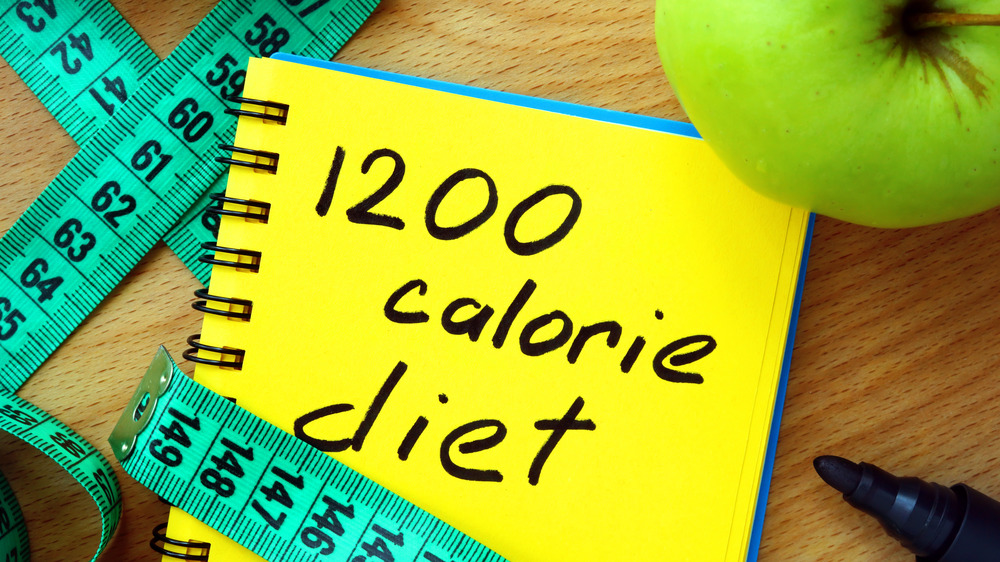You Should Rethink The 1,200-Calorie Diet. Here's Why
If weight loss is your goal and the 1,200-calorie diet is your strategy, take note. Yes, you might shed a few pounds in the beginning, but there are some serious health ramifications to consider.
Let's first take a peek at what a sample 1,200-calorie day might look like. The Cleveland Clinic proposes a breakfast of two large eggs, two slices of whole grain bread, and one tablespoon of olive oil spread. For lunch, they suggest two more slices of whole grain bread, three ounces of canned, water-packed tuna, one slice of low-fat mozzarella cheese, and one tablespoon of olive oil-based mayonnaise. For supper, relish four ounces of grilled chicken, one medium baked potato, and 1 1/2 cups of green beans. Need snacks? Of course you do, and you may have one cup of skim milk and one medium apple. Rigid? Yes. Sustainable? Not likely, and not without some serious side effects (via HuffPost).
The 1,200-calorie diet isn't some new, trendy weight loss scheme. According to The Takeout, it was actually created in the late 19th century by European scientists who proclaimed that the number of calories consumed should precisely match the calories burned. Although the number wasn't chosen arbitrarily — 1,200 calories was deduced by measuring calories in and calories out — BuzzFeed News highlights that this dietary logic is flawed, and fails to address important individual factors, such as age, activity level, hormones, and food preferences.
Hunger, headaches, hormone changes...is this the diet for you?
According to Medical News Today, the average adult needs 1,600 to 3,000 calories per day for weight maintenance. For weight loss the numbers drop by about 500 to 750 calories per day, but calorie needs vary from person to person and are determined by age, body size, and activity level; severely restricting calories below what your body needs can cause intense hunger, dizziness, fatigue, nausea, nutrient deficiencies, headaches, and gallstones (via Healthline). In addition, any achieved weight loss is likely temporary because calorie deficiency alters your metabolism, increases the hunger hormones ghrelin and cortisol, and slows your resting metabolic rate (RMR), or the calories you burn at rest (via Healthline).
Men's Health adds that severe calorie restriction disrupts the body's endocrine system, a system of glands that regulates insulin levels, fat tissue, and inflammation, increasing the risk of cardiovascular issues, osteoporosis, and reproductive health problems.
Now for some good news. As the Independent points out, the slimmest and healthiest populations in the world don't exist on 1,200 calories per day; they enjoy good quality food while focusing on health and longevity.
Instead of restricting calories, Today suggests choosing nutrient-dense, satiating, whole foods, such as chicken, fish, vegetables, nuts, seeds, and whole grains, while dodging nutrient-void, processed foods, added sugars, and refined grains.
Very Well Fit emphasizes that losing weight doesn't always correlate with being healthy; exercise, sleep, and other lifestyle choices are critical in long term health and well-being.

